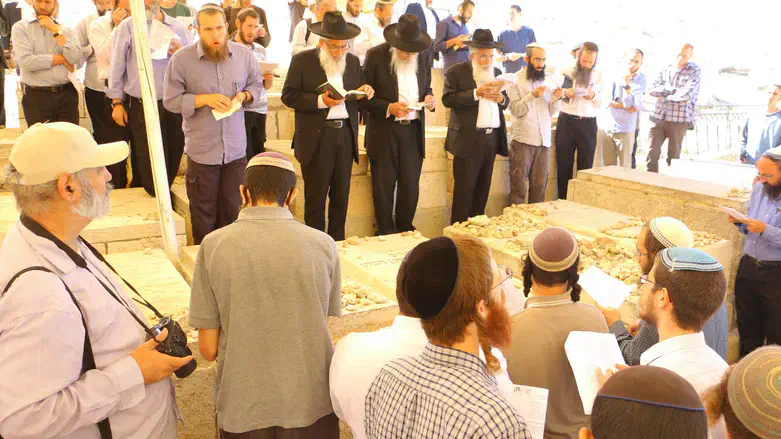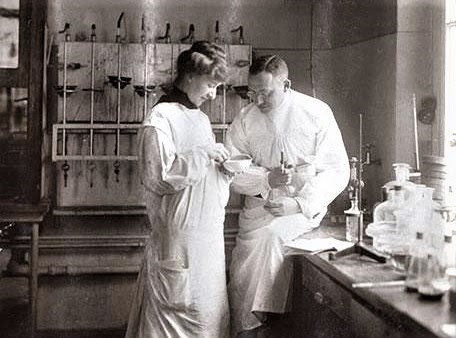


One of the last people to speak with Rav Kook before his death was Prof. Hermann Zondek. Director of Jerusalem’s Bikur Cholim hospital, Dr. Zondek treated the rabbi in a guest house in the Kiryat Moshe neighborhood of Jerusalem during his final illness. (it is on Pik Street and there is a sigh outside, ed.) The doctor was struck by the rabbi’s concern and empathy toward everyone he encountered, even during his last hours, when suffering intense pain.
Professor Zondek was an early victim of the rise of Nazism in Germany. In 1933, while treating patients in his Berlin hospital, he was summoned to his office. There, an SS officer informed Zondek that he was dismissed from his position as director of the Berlin City Hospital, effective immediately. His service during World War I as a military physician, his highly respected medical research, and his well-placed patients, which included German chancellors — all these counted for naught.
That very night, Zondek fled Germany. He later commented, “It was only after I left Germany that I realized that, until 1933, we Jews of Germany had been living in a fool’s paradise.”
Two years later, the doctor was working in Jerusalem, treating the elderly Chief Rabbi in his final days. “A person’s true nature is revealed during times of illness,” he noted. “The rabbi bore his terrible suffering with great wisdom.”
In his final hour, Rav Kook was in severe pain. The room was full of people, and his colleague-disciple Rabbi Yaakov Moshe Charlap sat by his bed.
“About half an hour before his death,” Zondek recalled, “the rabbi took my hand in his. His voice thick with emotion, he said to me, ‘I hope that the prominent sons of our people will not leave our land, but will remain here to help build it up.’
“And then he pleaded, ‘Please, stay here in the Land of Israel!'”
“The truth is that this incident took place not long after my arrival in the country. I had many difficulties adjusting. Much of what I found was not to my liking, and I was seriously considering leaving. But the rabbi’s heartfelt appeal, at that critical juncture, played a decisive role in my decision to stay in our land. As a result, I put down roots here.”
(Stories from the Land of Israel. Adapted from ShivcheiHaRe’iyah, p. 304.